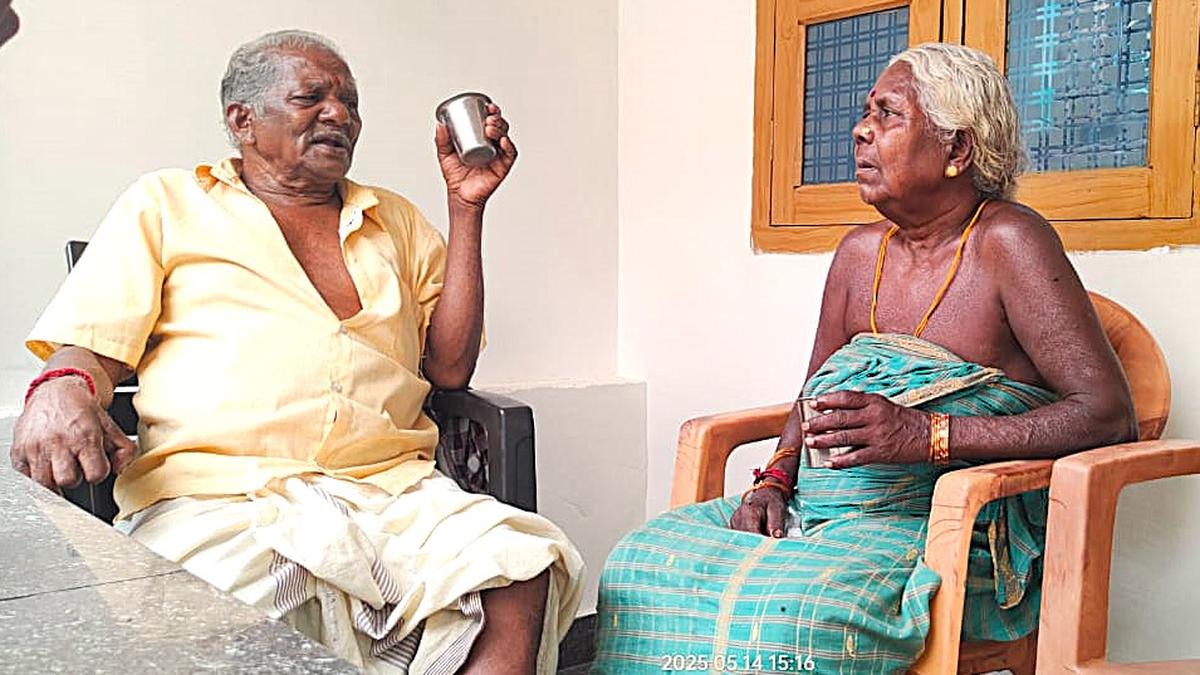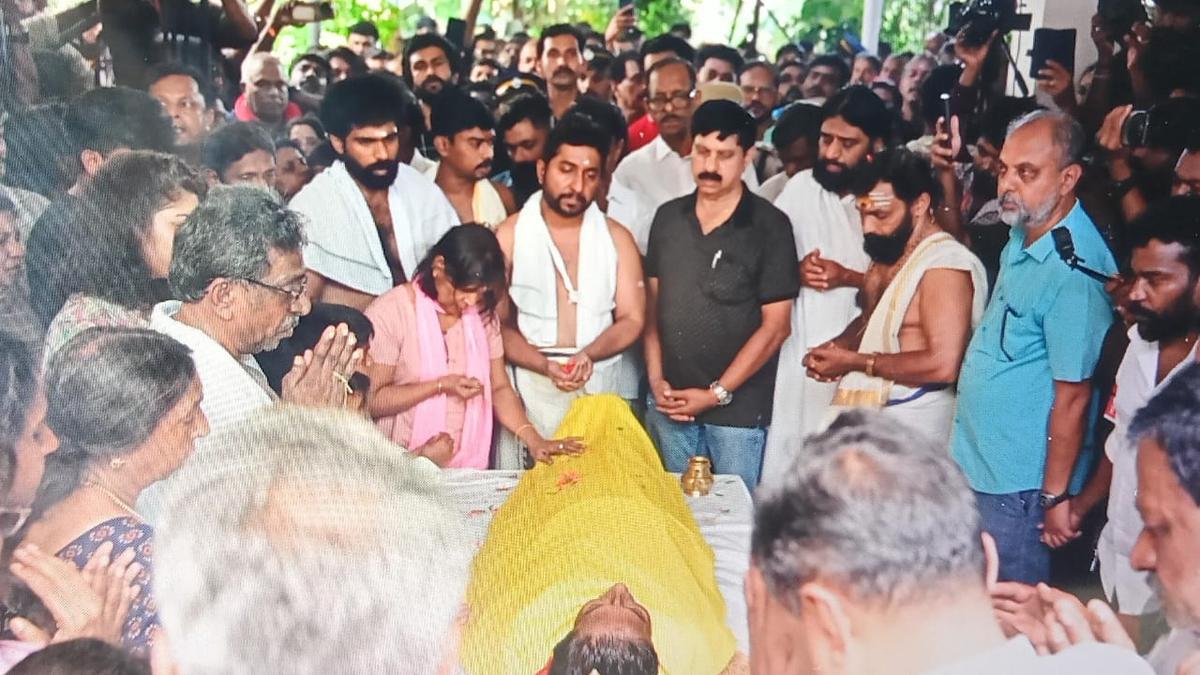Manappan savouring a tea along with his wife Panchi at his house at Kavundikkal, Attappady.
In Attappady’s Kavundikkal hamlet, 80-year-old tribal leader Manappan still shudders at the mention of the Emergency. Fifty years have passed since its imposition on June 25, 1975, but the memories of his incarceration remain etched in his mind and evokes a deep sense of dread.
Manappan’s arrest was a direct result of his affiliation with Communism, an ideology that put him in the crosshairs of the authorities. He was arrested from his hamlet along with fellow tribal leader Bhinnan, a companion in his struggles who would eventually succumb to the passage of time.
Manappan’s voice cracked as he recounted his 18-day ordeal in Palakkad District Jail. The darkness of the prison cell was matched only by the brutality of the regime, leaving scars that still linger decades later. “Those days were painful,” he said.
His passion for Communism ignited in 1967 and propelled him to the forefront of Attappady’s tribal land rights movement. His defiant chants of ‘Inquilab Zindabad’ and ‘Engal bhoomi engalukku, aaru vannalum tharamatte’ still echo, a reminder of his unyielding spirit despite facing repeated imprisonment.
Manappan’s eyes lit up as he recalled his association with Communist stalwarts such as E.M.S. Namboodiripad and E.K. Nayanar, who had sought refuge in Attappady during their underground days. A warm smile spread across his face, reflecting the deep respect and admiration he had for those leaders.
He is now leading a retired life along with his wife, Panchi, at Kavundikkal, Attappady. “From our interactions with Manappan, we could gain a lot of insight not only into the lives of the tribespeople, but also into the social transformation that the tribal community witnessed over the years,” said T. Satyan, a former teacher at Government Vocational Higher Secondary School, Attappady.
Manappan reminisced about his childhood in Attappady, where only two Tamil schools existed. He carried sand from the riverbank in a bag to use as a writing surface. The school uniform included a Nehru cap and students enjoyed mid-day meals under K. Kamaraj’s Chief Ministership. A unique aspect of school life was a barber’s regular visit to cut the students’ hair every two months.
His life took a dramatic turn when Attappady was hit by landslides and cholera in the early 1960s. Leaving behind his job as a hostel warden, he returned to his hamlet to help his community. His memories of the region’s malaria-infested past were stark. He was grateful for the Italian doctor who brought relief to Attappady by spraying DDT in the late 1940s.
Published – June 25, 2025 08:56 pm IST




